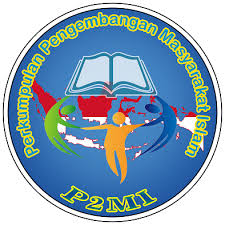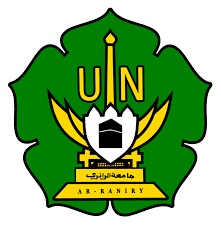EMPOWERMENT STRATEGY OF BAROKAH FOOD MSMEs GROUP THROUGH LPEM BAZNAS MUSTAHIK ENTREPRENEURSHIP PROGRAMME IN DEPOK CITY
DOI:
https://doi.org/10.22373/al-ijtimaiyyah.v10i2.24982Keywords:
Economic Empowerment, MSMEs, MustahikAbstract
BAZNAS Mustahik Economic Empowerment Agency is a productive zakat management and utilisation institution. This institution, through the Mustahik Entrepreneur empowerment programme, empowers and distributes zakat funds to mustahik MSMEs actors who have the potential to develop their businesses. The Mustahik Entrepreneur programme acts as a tool for productive mustahik to develop into muzakki. This research aims to explain LPEM's strategy in empowering mustahik groups, the stages of empowerment, and the inhibiting and supporting factors of the empowerment programme of the Barokah Food MSMEs group of the Mustahik Entrepreneur Programme of LPEM BAZNAS. This research uses a descriptive qualitative approach. Data collection techniques through observation, interviews, and documentation as well as purposive sampling techniques in selecting research informants. Data analysis through three flows, namely data reduction. Presentation of data and conclusion drawing. The results of the research that economic empowerment in the Barokah Food MSMEs group are: 1) Capital assistance, not just direct funds but also business tools and materials; 2) Improving skills, mustahiks are accompanied and coached to improve skills and develop businesses; 3) Sustainable empowerment. The conclusion is that the empowerment of the Barokah Food MSMEs group through the Mustahik Entrepreneur Programme has increased mustahik income, developed businesses while increasing mustahik knowledge and skills.
Downloads
References
Ahyar, H., Maret, U. S., Andriani, H., Sukmana, D. J., Mada, U. G., Hardani, S. P., Nur Hikmatul Auliya, G. C. B., Helmina Andriani, M. S., Fardani, R. A., Ustiawaty, J., Utami, E. F., Sukmana, D. J., & Istiqomah, R. R. (2020). Buku metode penelitian kualitatif & kuantitatif (Qualitative and Quantitative Research Methods). Yogyakarta: Universitas Gadjah Mada.
Akmaliyah, M. (2016). Pemberdayaan: Kementerian Sosial & LSPS (Empowerment: Ministry of Social Affairs & LSPS). Jurnal, 1(2), 2016.
Anwar, A. (2018). Zakat produktif untuk pemberdayaan ekonomi umat (Productive Zakat for Community Economic Empowerment). ZISWAF: Jurnal Zakat dan Wakaf, 5(1), 41. https://doi.org/10.21043/ziswaf.v5i1.3508
Bambang, Azis, A. A., Kalsum, U., Akmal, S. B., Alfiana, & Almahdali, F. (2023). Pemberdayaan ekonomi masyarakat melalui pelatihan kewirausahaan dan akses pembiayaan (Community Economic Empowerment through Entrepreneurship Training and Access to Financing). Easta Journal of Innovative Community Services.
Central Bureau of Statistics. (2021). Gini Ratio 2021 (Rasio Ketimpangan 2021). Retrieved December 2, 2021, from https://www.bps.go.id/id/pressrelease/2021/07/15/1845/gini-ratio-maret-2021-tercatat-sebesar-0-384-.html
Daniel Ayub Dawan. (2022). Strategi pengembangan sumber daya manusia pada CV. Fajar Cendekia Intermedia Kota Jayapura (Human Resource Development Strategies at CV. Fajar Cendekia Intermedia, Jayapura City). Inovatif: Jurnal Penelitian Pendidikan, Agama, dan Kebudayaan, 8(1), 164–178. https://doi.org/10.55148/inovatif.v8i1.270
Firlina, S., & Afriyanti, D. (2024). Implementasi zakat produktif terhadap pemberdayaan ekonomi usaha mikro kecil menengah (UMKM) melalui program Pekanbaru Makmur pada BAZNAS Kota Pekanbaru (Implementation of Productive Zakat for MSME Economic Empowerment Through the Pekanbaru Makmur Program at BAZNAS Pekanbaru City). Al-Masharif: Jurnal Ilmu Ekonomi dan Keislaman.
Hadiyanti, P. (2008). Strategi pemberdayaan masyarakat melalui keterampilan produktif (Community Empowerment Strategies Through Productive Skills). Perspektif Ilmu Pendidikan, 17(9), 90–99.
Hamzah, M. W., Mulyana, A., & Faisal, Y. A. (2023). Pemberdayaan ekonomi masyarakat melalui affiliate marketing dan peningkatan pendapatan afiliator (Community Economic Empowerment Through Affiliate Marketing and Increasing Affiliate Income). Al Qalam: Jurnal Ilmiah Keagamaan dan Kemasyarakatan.
Hasbi Zaenal, Muhammad., Abdul Aziz Yahya Saoqi, Nono Hartono, Patria Yunita, Ihsanul Ikhwan, Herlin, Dita Anggraini, Hidayaneu Farchatunnisa, Siti Maulida Adhiningsih, Mutiara Sakinah, Shelda Mustik, Burhanudin, Rifda Mufida, Nur Adibah, Yuke Fatihaturahmah, Meis Winih Sosianti, Nurzidta Okta Rinanda, Farras Syafiqah. (2024). Outlook Zakat Indonesia 2024. Pusat Kajian Strategis – Badan Amil Zakat Nasional (Puskas BAZNAS). (Indonesia Zakat Outlook 2024).
Heryanto, H. (2023). Usaha mikro kecil dan menengah (UMKM) dalam masa pandemik di Indonesia (Micro, Small, and Medium Enterprises During the Pandemic in Indonesia). JIIP - Jurnal Ilmiah Ilmu Pendidikan.
Hidayat, A. (2017). Purposive sampling: Pengertian, tujuan, contoh, langkah, rumus (Purposive Sampling: Definition, Purpose, Examples, Steps, Formulas). Retrieved December 1, 2021, from https://www.statistikian.com/2017/06/penjelasan-teknik-purposive-sampling.html
Husdiana, H., & Imsar, I. (2023). Efektivitas dana zakat dalam pengembangan dan pemberdayaan ekonomi mustahik di kalangan UMKM pada Badan Amil Zakat Nasional (BAZNAS) Provinsi Sumatera Utara (The Effectiveness of Zakat Funds in Developing and Empowering Mustahik’s Economy in the MSME Sector at the National Amil Zakat Agency (BAZNAS) of North Sumatra Province). Jurnal Akuntansi AKTIVA.
Isbandi Rukmito Adi. (2001). Pemberdayaan, pengembangan masyarakat dan intervensi komunitas: Pengantar pada pemikiran dan pendekatan praktis (pp. 173–178). Jakarta: Lembaga Penerbit Fakultas Ekonomi UI. (Empowerment, Community Development, and Community Intervention: An Introduction to Thinking and Practical Approaches).
Izdihar, R. A., & Widiastuti, T. (2020). Peran lembaga amil zakat Muhammadiyah (LAZISMU) Surabaya dalam pemberdayaan UMKM perempuan melalui pemanfaatan dana infaq dan shadaqah (The Role of Muhammadiyah Zakat Institution (LAZISMU) Surabaya in Empowering Women’s MSMEs Through Infaq and Sadaqah Funds).
Jannah, M. J., & Armen, R. E. (2024). Program zakat produktif untuk UMKM oleh LAZNAS Lembaga Manajemen Infaq Kanwil Sumatera Selatan (Productive Zakat Program for MSMEs by LAZNAS Lembaga Manajemen Infaq, South Sumatra Regional Office). Jurnal Ilmiah Mahasiswa Perbankan Syariah (JIMPA).
Komariah, O., & Damayanti, N. (2014). Pendayagunaan zakat produktif oleh lembaga zakat dalam meningkatkan pendapatan mustahiq (Utilization of Productive Zakat by Zakat Institutions to Increase Mustahiq Income). Jurnal Islaminomic, 6(2).
Maarif, S. D. (2021). Mengenal teori pemberdayaan masyarakat menurut para ahli (Understanding Community Empowerment Theory According to Experts). Retrieved from Tirto.id.
Mulia, B. (2021). Mengenal strategi dan langkah-langkah pemberdayaan komunitas (Understanding Strategies and Steps in Community Empowerment). Retrieved from Tirto.id.
Niode, I. Y. (2009). The MSME sector in Indonesia: Profile, issues, and empowerment strategies (Sektor UMKM di Indonesia: Profil, Masalah, dan Strategi Pemberdayaan). OIKOS-NOMOS Journal of Economic and Business Studies, 2(1), 1–10.
PPID BAZNAS. (n.d.). Profil PID BAZNAS (BAZNAS PID Profile). Retrieved March 30, 2022, from https://pid.baznas.go.id/profil-pid-baznas/
Sari, A. K. (2019). Dampak dana zakat produktif BAZNAS terhadap pemberdayaan usaha mikro kecil menengah (UMKM) di Kota Yogyakarta (Impact of BAZNAS Productive Zakat Funds on MSME Empowerment in Yogyakarta City).
Sarinah, I., Sihabudin, A. A., & Suwarlan, E. (2019). Pemberdayaan masyarakat dalam bidang ekonomi oleh Pemerintah Desa Pangandaran Kecamatan Pangandaran Kabupaten Pangandaran (Community Economic Empowerment by the Pangandaran Village Government, Pangandaran District). Jurnal Moderat, Universitas Galuh Pangandaran, 5(4), 267–277.
Sartyka, M. (2023). Evaluation of empowering micro, small, and medium enterprises (MSMEs) as an effort to enhance business competitiveness in Baratajaya Subdistrict, Gubeng District, Surabaya City (Evaluasi pemberdayaan usaha mikro kecil dan menengah (UMKM) sebagai upaya meningkatkan daya saing usaha di Kelurahan Baratajaya Kecamatan Gubeng Kota Surabaya). Madika: Journal of Politics and Governance.
Solihin, A. (2020). Pengenalan metode analisis perencanaan dalam mendukung penyusunan rencana teknis KKPD (Introduction to Planning Analysis Methods for Supporting Technical Planning of KKPD) (pp. 11–13).
Wiadnyani, I. A. (2016). Tahap-tahap pemberdayaan (Stages of Empowerment). Retrieved from Scribd: https://www.scribd.com/doc/297167498/TAHAP-TAHAP-PEMBERDAYAAN (Uploaded on January 30, 2016).
Widiastuti, T., & Rosyidi, S. (2015). Model Pendayagunaan Zakat Produktif Oleh Lembaga Zakat Dalam Meningkatkan Pendapatan Mustahiq. Jurnal Ekonomi Bisnis, 1(1), 89–102. (The Model of Utilization of Productive Zakat by Zakat Institutions in Increasing the Income of Mustahiq).
Downloads
Published
Issue
Section
License
Authors who publish in Jurnal Al-Ijtimaiyyah agree to the following terms:
- Authors retain copyright and grant the journal right of first publication with the work simultaneously licensed Attribution-ShareAlike 4.0 International (CC BY-SA 4.0) that allows others to share the work with an acknowledgment of the work's authorship and initial publication in this journal.
- Authors are able to enter into separate, additional contractual arrangements for the non-exclusive distribution of the journal's published version of the work (e.g., post it to an institutional repository or publish it in a book), with an acknowledgment of its initial publication in this journal.
- Authors are permitted and encouraged to post their work online (e.g., in institutional repositories or on their website) prior to and during the submission process, as it can lead to productive exchanges, as well as earlier and greater citation of published work. (See The Effect of Open Acces)







